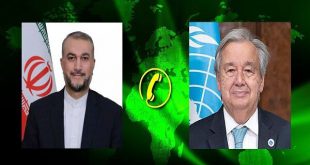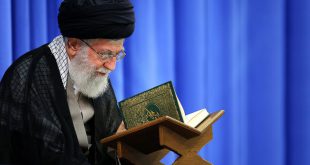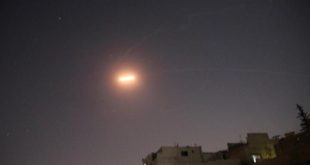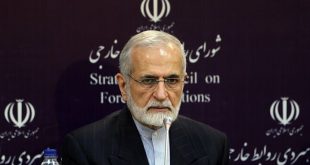Iranian President Ebrahim Raisi has returned from a tour of Latin America, where he signed dozens of agreements with three allies who share Tehran’s defiance of Western powers.
The Iranian president, who was accompanied by his ministers of foreign affairs, defense, petroleum and health, arrived in Tehran on Friday after a five-day trip that took him to Venezuela, Nicaragua and Cuba.
Speaking to reporters, Raisi said 35 memoranda of understanding and agreements were signed with Venezuela, Nicaragua, and Cuba in energy, industry, mining, and power plant fields.
Latin America, he said, is a strategic region in the world, which abundant natural resources and educated people.
“It has fought against the arrogance system for many years, and in the history of Latin America, there are countries that have several decades of struggle against the current unjust order in the world,” he added.
Throughout the trip, Raisi criticized the United States and the economic sanctions imposed on Iran and its allies in Latin America.
“Relations between Iran and Venezuela are not normal diplomatic ties. They are strategic,” Raisi said in Caracas, where he was warmly received by President Nicolas Maduro.
“The nations of Iran and Venezuela have shared enemies, who do not wish us to live independently,” he said in reference to Washington.
The two countries signed more than two dozen agreements.
Several related to energy, including deals on developing an oil platform and a petrochemical products plant, while agreements were also signed on maritime transport, agriculture, medicine, information technology, insurance and cultural ties.
Iran and Venezuela signed a 20-year cooperation plan last year during a Maduro visit to Tehran. The two presidents said this week that their new agreements are in line with better implementing the plan.
The two-day visit culminated in the signing of an MoU with Venezuela for the production and export of 200,000 cars in five years and bringing joint automobile company Venirauto back online, Saipa CEO Muhammadali Teimouri said.
Raisi said in Caracas that the volume of annual bilateral trade currently stands at more than $3 billion and the two countries can boost it to $10 billion in the medium term on their way to a target of $20 billion.
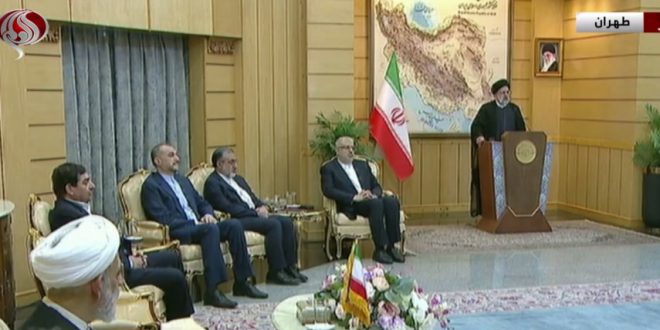
Latin America Visit Secures 35 Agreements
said he wants to install a bust of Qassem Soleimani, an Iranian general who was assassinated in a U.S. drone attack in Iraq in January 2020, at the resting place of Simon Bolivar, a Venezuelan military and political leader who led parts of Latin America to independence from Spanish colonial rule two centuries ago.
The themes of praising Gen. Soleimani and criticizing Washington continued in Raisi’s next destination, Managua.
Standing next to Raisi, Nicaraguan President Daniel Ortega dedicated several minutes of a speech to Gen. Soleimani, after which the two presidents observed a minute of silence for the general.
“We pay homage together with our heroes and martyrs to all the heroes and martyrs of Iran, in particular to General Qassem Soleimani, who was assassinated by Yankee imperialism when he was fighting against terrorism,” Ortega said.
The Iranian president hit out at the sanctions that Washington has imposed on Iran and Nicaragua.
“The U.S. wanted to paralyze our people with threats and sanctions, but it hasn’t been able to do it,” said Raisi, who also later addressed Nicaragua’s National Assembly.
The two presidents signed several agreements covering economic and trade cooperation and the health sector, according to Iranian state media.
On the last leg of his tour, the Iranian president travelled to Havana. He was welcomed by Cuban President Miguel Díaz-Canel, who promised to bolster political engagement with Tehran.
“When the president of Iran comes to our country under these conditions of sanctions against the nation of Cuba, it strengthens our faith and belief in Iran,” he said.
The Cuban president also promised to visit Tehran this year, saying a trip has been in the works for some time but had been prevented by the COVID-19 pandemic and other issues.
The two countries signed six agreements, which included a political cooperation roadmap.
Iran’s health minister, Bahram Einollahi, said the tour resulted in “one of the biggest achievements of the holy establishment of the Islamic Republic of Iran in the health sector” as Iran and all three countries agreed to establish a joint health cooperation working group.
He said Iran, which says it produces almost all the medicine it needs, will export drugs and medical equipment to Venezuela and Nicaragua while also aiming to boost university collaboration with all three countries.
In Havana, Raisi and Iranian Foreign Minister Hussein Amir-Abdollahian also met former President Raúl Castro.
Maria Elvira Salazar, chairwoman of the Subcommittee on the Western Hemisphere in the U.S. House of Representatives, told Fox News that Raisi’s trip demonstrates the failure of President Joe Biden’s Latin America policy.
 صراط عشق صراط عشق
صراط عشق صراط عشق
